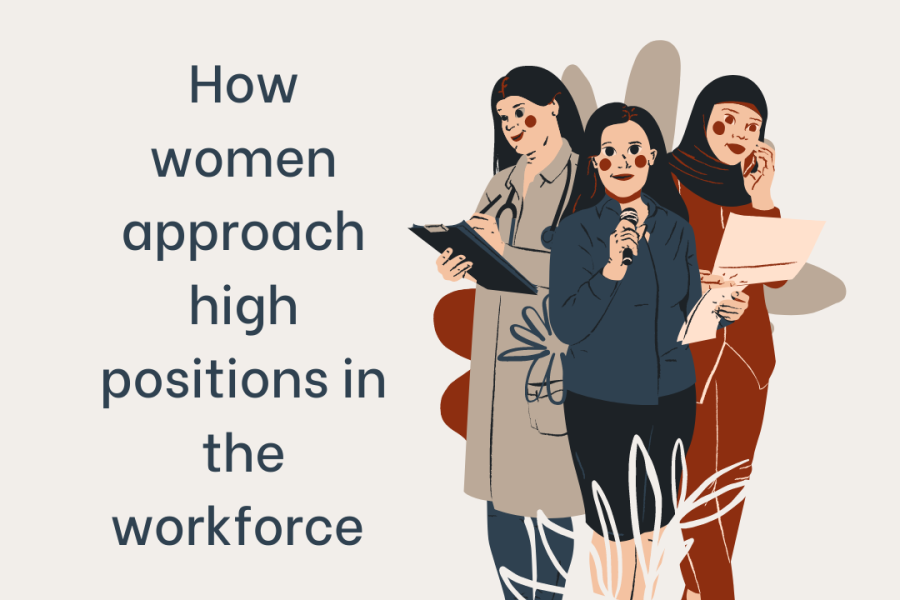Women in high positions explain their hardships
Women are not as likely to apply for a position if they do not check all the boxes. Those in higher positions at Washburn speak about their experiences of getting the job and what comes after.
According to Zippia, as of Dec. 2021, women held 35% of leadership positions in the workforce.
Applying for a position that holds plenty of power can be intimidating, especially if you are a woman.
“I have heard, I’m not sure of the exact source, but women are significantly less likely to apply for positions if they don’t feel like they can check every box in terms of requirements and I have definitely seen that to be true for myself,” said Lauren Edelman, director of the Leadership Institute.
Women have historically been perceived as the caretakers, so trying to stray away from the stereotype can be difficult to do when applying for positions.
To further assure this stereotype, Edelman spoke about her three children and explained that many times she is called when they are sick, rather than her husband. Though she is a caretaker, Edelman is also a woman in the workforce, and it may not be perceived that way all the time.
“One of the things that is not exclusive to higher education and is present everywhere is that there’s still an inequitable assumption in the balance of gender roles at home,” Edelman said.
As a woman, Edelman explained that it is difficult applying for such a high position at Washburn.
Edelman talked about when she would go through the job descriptions and if she felt that she was not a strong candidate she would be “apprehensive about applying.”
Positions come with pressure that men may usually not feel.
“I definitely think that sometimes men are more comfortable or more willing to put their name in the hat for an opportunity even if they don’t check as many boxes,” Edelman said.
Even after being awarded the position, women can also feel the impacts of the imposter syndrome, which leaves them questioning if they are cut out to hold this high of a position.
“I think imposter syndrome is something that affects a lot of us, but I think it gets a little better with age, but I think you almost have to fake it until you feel it,” said Kelly Erby, assistant dean of the college of arts and sciences.
Erby spoke about how she would have not applied for her current position if her colleague, Laura Stephenson, did not push her towards it.
“I think women are more likely to not want to be perceived as braggy or pushy, so sometimes they are not as assertive in pushing to be leaders,” Erby said.
Finding a balance of being respected and assertive can be difficult for women because their colleagues may perceive them as too assertive or not assertive at all.
“Starting out in my career, I remember at Georgia State the tenured male professors often thought I was a student,” Erby said.
Now growing in her career, Erby feels that it is good that Washburn is having a change in leadership.
“We are currently in a moment of change where there is a lot of transition,” said Erby. “There are a lot of women department chairs in the college, several female deans and our vice president of academic affairs, JuliAnn Mazachek, is a woman but I would like to see us have a female president sometime.”
Erby and Edelman believe there is still some improvement to make and cannot wait to see it.
“I currently think Washburn tries, but I don’t think we have a lot of upper administrators that represent all facets of diversity and those that represent our student body,” Edelman said.
As two women in high positions, both Edelman and Erby encourage women to go into male-dominated fields because a difference can be made even if a woman does not check all the requirements in the job description.
Edited by: Glorianna Noland, Alyssa Storm
Your donation will support the student journalists of Washburn University. Your contribution will allow us to purchase equipment and cover our annual website hosting costs.













